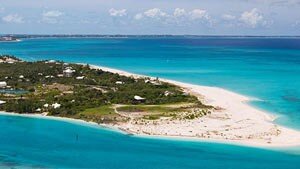Best Restructuring & Insolvency Lawyers in Turks and Caicos Islands
Share your needs with us, get contacted by law firms.
Free. Takes 2 min.
Or refine your search by selecting a city:
List of the best lawyers in Turks and Caicos Islands
About Restructuring & Insolvency Law in Turks and Caicos Islands
Restructuring and insolvency laws in the Turks and Caicos Islands aim to manage situations where a company or individual is unable to meet their financial obligations. These legal frameworks assist both debtors and creditors in navigating financial difficulties, protecting assets, and addressing outstanding debts. The legal system in the Turks and Caicos Islands is based on English common law, with local statutes and specific procedures tailored for the territory. Whether involving out-of-court restructurings or formal insolvency proceedings, these laws ensure orderly, fair, and legal solutions to financial distress.
Why You May Need a Lawyer
Legal advice is highly recommended in restructuring and insolvency matters, as these situations often involve complex decision-making, significant financial risks, and legal obligations. Common scenarios where you might require a lawyer's help include:
- When a business is facing cash flow problems or operational losses and needs to explore options for restructuring debts.
- When creditors need assistance recovering debts or understanding their rights in an insolvency process.
- If a business owner needs to determine whether to continue operations, restructure, or close the business.
- When directors or officers are concerned about their duties and potential personal liability during financial difficulties.
- If investors or stakeholders wish to protect their interests or participate fairly in insolvency proceedings.
- For cross-border insolvency cases, where assets or creditors are located both in and outside of the Turks and Caicos Islands.
A lawyer specializing in this area can help strategize the best approach, ensure compliance with local laws, prepare necessary documentation, negotiate with creditors, and represent clients in court if required.
Local Laws Overview
The corporate insolvency framework in the Turks and Caicos Islands is derived primarily from local statutes and heavily influenced by English law principles. Key features include:
- Provisions for voluntary liquidation (initiated by shareholders) and compulsory liquidation (initiated by creditors or the court) for insolvent companies.
- The appointment of a liquidator who takes control of the company's affairs, manages asset realization, and distributes proceeds to creditors.
- Recognition of secured and unsecured creditors, and established procedures for lodging claims and receiving payments according to statutory priority.
- Protection for creditors, including an automatic stay on proceedings once a winding up order is issued.
- Mechanisms for out-of-court restructuring, allowing struggling companies to negotiate terms with creditors to avoid formal insolvency.
- Director and officer duties, especially the obligation to act in the best interests of creditors when insolvency is imminent.
- Procedures for cross-border insolvency, enabling cooperation with foreign courts and insolvency practitioners.
- Personal bankruptcy and debt relief options for individuals, available under local statutes.
Every situation is unique, and the right approach depends on the nature and severity of financial distress.
Frequently Asked Questions
What is the difference between restructuring and insolvency?
Restructuring involves negotiating new terms with creditors or reorganizing a business to restore its financial health, often while operations continue. Insolvency is a legal state in which an individual or company cannot pay its debts as they fall due, potentially leading to formal processes like liquidation or bankruptcy.
How do I know if my company is insolvent?
Indicators of insolvency include inability to pay bills on time, liabilities exceeding assets, or failed negotiations with creditors. A legal assessment may be necessary to confirm insolvency status based on balance sheets and cash flow tests.
What are the main insolvency procedures for companies in the Turks and Caicos Islands?
The primary procedures are voluntary liquidation (initiated by the company) and compulsory liquidation (initiated by creditors or the court). Both involve appointment of a liquidator to manage the company's dissolution and the distribution of assets to creditors.
What protections do creditors have if a debtor becomes insolvent?
Creditors can lodge claims with the liquidator to recover unpaid debts. Secured creditors generally have priority over unsecured creditors. There is also a legal stay on further action once formal insolvency proceedings begin, helping ensure fair treatment.
What are the duties of company directors in an insolvency situation?
Directors must act in the best interests of creditors, avoid preferences or fraudulent transactions, and not incur further debts when insolvency is likely. Breach of these duties can result in personal liability.
Can an individual go bankrupt in the Turks and Caicos Islands?
Yes, individuals can be declared bankrupt if they are unable to pay their debts. Local statutes set out the process, including the appointment of a trustee to manage and distribute assets to satisfy creditors.
Is it possible to restructure debts out of court?
Yes, out-of-court negotiations are common and often preferred for their speed and flexibility. Businesses may work with creditors to agree on payment plans, debt reductions, or other arrangements without formal insolvency proceedings.
Are there cross-border insolvency rules?
Yes, the Turks and Caicos Islands recognize cross-border insolvency principles, facilitating cooperation with foreign courts and insolvency practitioners where companies or assets are located in multiple jurisdictions.
How long does the insolvency process usually take?
The timeframe varies depending on complexity, number of creditors, and whether assets need to be sold. Simple cases may be concluded in months, while more complicated proceedings can take a year or longer.
Do I need to attend court during insolvency proceedings?
In many cases, attendance is not necessary unless there are disputes or specific legal issues requiring a hearing. Your insolvency practitioner or lawyer will advise if your presence is required.
Additional Resources
If you or your business is facing financial distress or considering restructuring or insolvency, the following resources may assist:
- The Financial Services Commission of the Turks and Caicos Islands - Oversees companies, trustees, and other financial entities.
- The Turks and Caicos Islands Court System - Handles insolvency proceedings and related legal matters.
- Registered local insolvency practitioners and legal professionals - Qualified experts who can provide advice, prepare documentation, and act as liquidators or trustees.
- Relevant local statutes - These outline the procedures and protections in place for both companies and individuals.
Professional societies and accredited law firms can also provide guidance and refer you to experienced lawyers in this field.
Next Steps
If you believe you or your business may need restructuring or insolvency advice:
- Gather all relevant financial documents, such as balance sheets, cash flow statements, and details of outstanding debts.
- Consider your immediate goals, including whether you wish to rescue the business, arrange an out-of-court settlement, or wind it up.
- Contact a lawyer or insolvency practitioner specializing in this area, ideally one with experience in the Turks and Caicos Islands.
- Arrange an initial consultation to assess your options and develop a plan tailored to your situation.
- Act early. Legal advice at the onset of financial difficulties can help protect your interests and avoid more severe outcomes.
While every case is different, seeking professional legal guidance as soon as possible is your best approach to safeguarding your assets and meeting your legal obligations under Turks and Caicos Islands law.
Lawzana helps you find the best lawyers and law firms in Turks and Caicos Islands through a curated and pre-screened list of qualified legal professionals. Our platform offers rankings and detailed profiles of attorneys and law firms, allowing you to compare based on practice areas, including Restructuring & Insolvency, experience, and client feedback.
Each profile includes a description of the firm's areas of practice, client reviews, team members and partners, year of establishment, spoken languages, office locations, contact information, social media presence, and any published articles or resources. Most firms on our platform speak English and are experienced in both local and international legal matters.
Get a quote from top-rated law firms in Turks and Caicos Islands — quickly, securely, and without unnecessary hassle.
Disclaimer:
The information provided on this page is for general informational purposes only and does not constitute legal advice. While we strive to ensure the accuracy and relevance of the content, legal information may change over time, and interpretations of the law can vary. You should always consult with a qualified legal professional for advice specific to your situation.
We disclaim all liability for actions taken or not taken based on the content of this page. If you believe any information is incorrect or outdated, please contact us, and we will review and update it where appropriate.
Browse restructuring & insolvency law firms by city in Turks and Caicos Islands
Refine your search by selecting a city.












